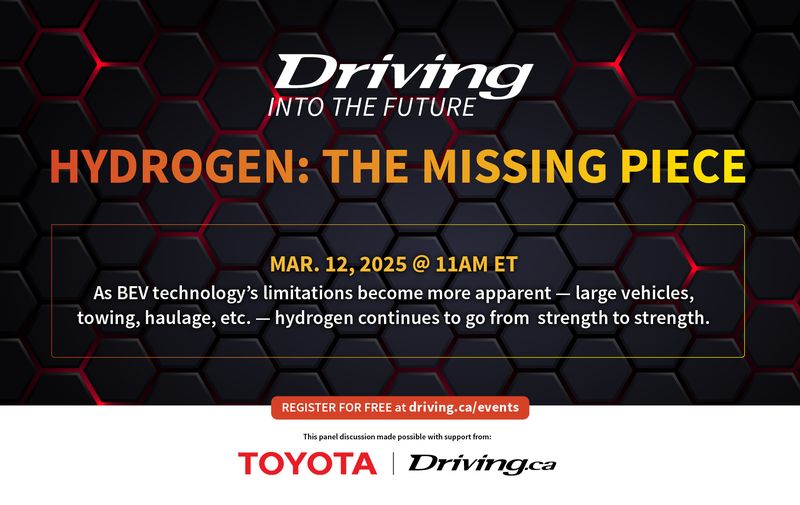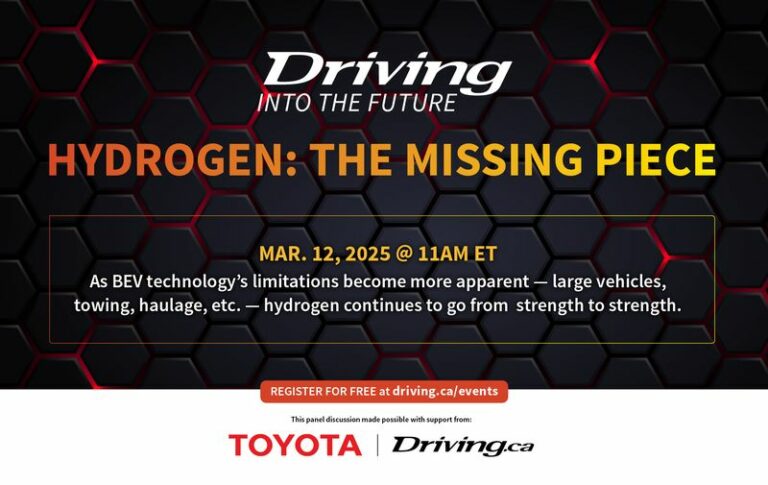Hydrogen’s Potential: Debunking the Myths and Exploring New Technologies
Elon Musk once famously dismissed fuel-cell vehicles as “fool cells.” His argument: they are too expensive and too inefficient to compete with battery-powered electric vehicles (EVs). Historically, he’s been right. EVs have surged in popularity, while fuel-cell electric vehicles (FCEVs) have lagged behind. The cost of hydrogen fuel and a lack of refueling infrastructure have also hindered their growth.
In Canada, for instance, battery-powered vehicles have gained significant market share; meanwhile, only a few hundred Toyota Mirai FCEVs have been delivered since 2018. However, recent innovations might change the landscape. Could technologies render hydrogen cheaper, make infrastructure more accessible, and even turn fuel cells more efficient than EVs?
Debunking the Myths: The Driving into the Future Panel
A Driving into the Future online panel brought together experts to address these questions and debunk common misconceptions. The panel, “Hydrogen: The Missing Piece,” explored how these challenges might be overcome.
Myth 1: Hydrogen is Energy-Inefficient
One of the biggest challenges for FCEVs is the energy efficiency of producing “green hydrogen” (hydrogen produced through renewable sources), and its subsequent use in a fuel cell, compared to directly powering cars with electricity. Electrolysis, the primary method for producing green hydrogen, uses a significant amount of electricity.
For example, to produce one kilogram of hydrogen, which can propel a Toyota Mirai roughly 100 kilometers, requires approximately 50 kilowatt-hours of electricity. By comparison, a vehicle like the Hyundai Ioniq 6, a battery-powered competitor, uses just 16.2 kilowatt-hours to cover the same distance.
Advancements in Hydrogen Production
However, some companies are working on ways to make hydrogen production more efficient. Robin Hamilton, the Chief Technology Officer for Dark Matter Materials (DMM), is developing a thermo-catalytic water-splitting process, which uses significantly less energy (between 2 and 8 kilowatt-hours per kilogram of hydrogen, depending on the heat used in the process).
Using the Mirai as an example again, if this technology is used, the fuel efficiency could potentially surpass the Hyundai Ioniq 6. According to Hamilton’s research, this thermo-catalytic production could be a game-changer for the automotive industry.
Myth 2: Hydrogen is Too Expensive
Another challenge is the cost of hydrogen. In California, FCEV owners pay up to US$36 per kilogram. The prices are a bit lower in Canada (around CDN$15/kg in British Columbia), but still significantly higher.
While the cost of producing hydrogen only represents approximately 15% of the price at the pump, the bulk of the expense is the cost of “densifying” and delivering the fuel.
Cryo-Compression for Cheaper Handling and Increased Efficiency
Verne is developing cryo-compression, a method that simultaneously compresses and liquefies hydrogen. The results are cheaper handling of hydrogen and more energy-dense fuel. Cryo-compressed hydrogen is almost twice as dense as gaseous hydrogen, which could translate to almost double the range for the Mirai or allow for more cabin space.
While the impact of these methods is still unknown, if it were successful, the costs of hydrogen could make fuel-cell-powered vehicles much more competitive with gas-powered counterparts.
The Rise of Plug-in Fuel-Cell Hybrid Vehicles
Plug-in fuel-cell hybrid vehicles (FCHEVs) offer another potential path forward. These hybrids, which are essentially traditional plug-in hybrids, replace the gas engine with a fuel-cell stack rather than a battery. Renault’s Embleme hydrogen EV concept car is an example.
These systems have a cathode, anode, and even an electrolyte, just like the batteries found in Teslas, with the main difference being what powers their electron transfer. Since most of the powertrain is shared with EVs, the implementation isn’t difficult. The hydrogen is only used on the open road, and could use renewable energy to fuel. This makes this technology an exciting avenue for the future.




